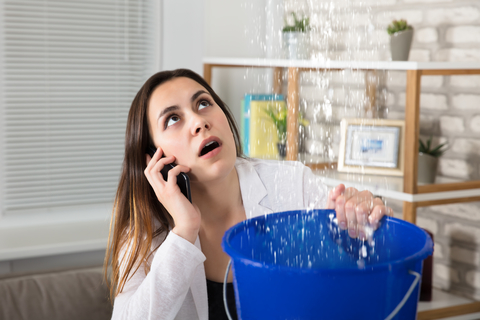As most people who experience cold winters know, frigid winter weather can cause plumbing pipes to freeze and possibly burst, causing flooding and costly water damage to your home. But what many don’t know is all of the preventative measures that need to be taken for preventing frozen pipes. Following are helpful tips to help you reduce and even eliminate the risk of frozen pipes in your home this winter.
· Keep the Heat On. If you’re leaving your house for an extended period of time, make sure that the heat is kept on. The heat doesn’t have to be kept as high as you normally would, but keeping it set above 65 degrees Fahrenheit is a good idea. This should provide enough heat to keep the pipes warm and to prevent any water inside from freezing.
· Allow Faucets to Drip Slightly. Allowing the faucets to be open will relieve pressure in the system. If a pipe freezes, it’s actually the pressure that is created between the blockage and the faucet that could cause the pipe to burst. Keeping the faucet open with a slight drip will prevent this pressure from building up and subsequently keep the pipe from bursting.
· Keep Interior Doors Open. Pipes are often located in cabinets. When the temperatures drop, it’s a good idea to keep these cabinet doors open so the heat from the rest of the house can keep the pipes warm as well. You should also keep all interior doors open so that the heat can flow throughout your home.
· Seal Up Cracks and Holes. Be sure to caulk any holes or cracks that exist near pipes. This should be done on both interior and exterior walls. Doing so will help keep the cold air out and the warm air in.
· Apply Heating Tape. For pipes that are easily accessible, electrical heating tape may be an option to keep them from freezing. This tape can be applied directly to the pipe. There are two types of heating tape. One turns on and off by itself when it senses heat is needed. The other type needs to be plugged in when heat is needed and unplugged when not in use.
· Add Extra Insulation. Pipes located in areas that don’t have proper insulation like basements or attics may need extra insulation to keep from freezing. Pipes can be fitted with foam rubber or fiberglass sleeves to help decrease the chances of freezing. Additional insulation can also be added to walls and ceilings to keep the pipes warm.
Call Curley Plumbing and Heating today!
If you need help or more details on preventing frozen pipes, call Curley Plumbing and Heating today at 516-487-6816 and we’ll be more than happy to answer any of your questions – and even come out and help you winterize your pipes if you’d like. Our experienced, fully screened and licensed technicians are always here to help. From the time you call us, to scheduling your service call, to completion, you can always count on Thomas Curley Plumbing and Heating!
Stay warm and we look forward to seeing you soon! Contact us today!


Recent Comments